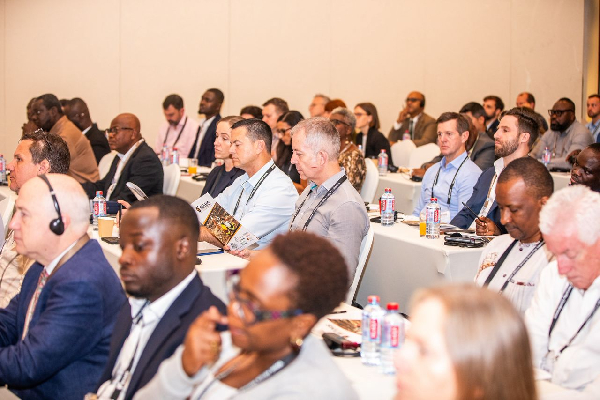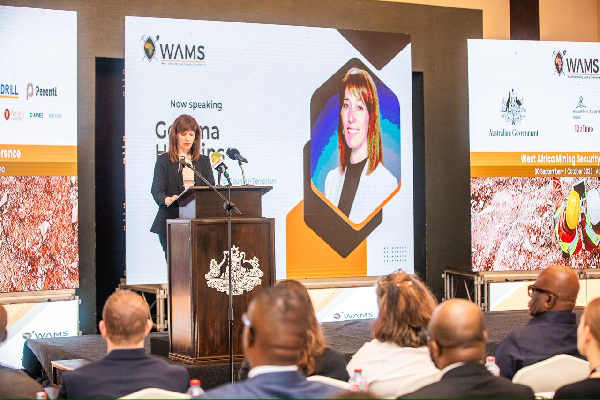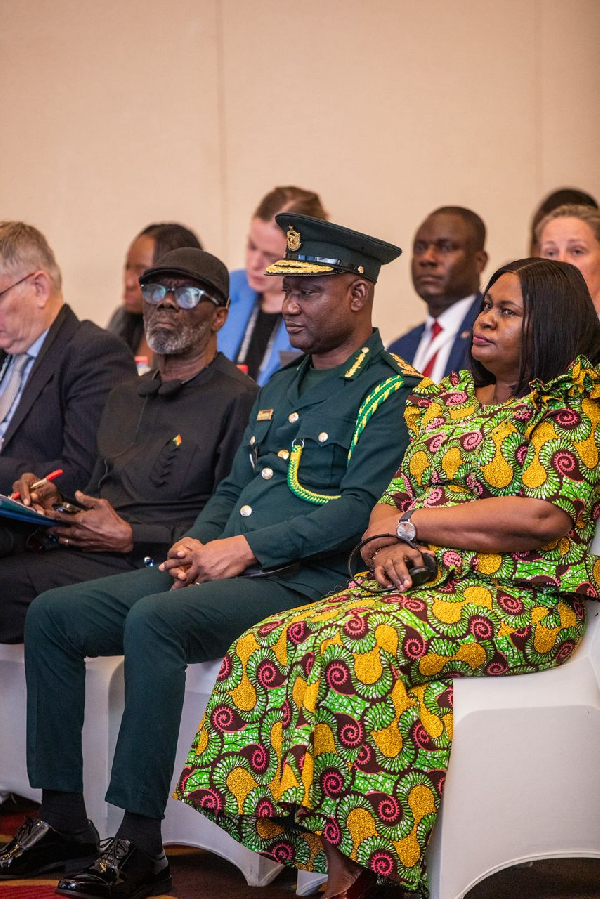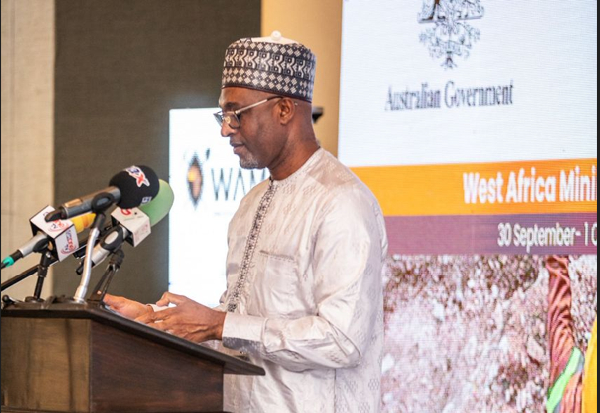The hum of generators and the clatter of mining trucks across West Africa’s mineral belts tell a story of a region rich in resources but increasingly uneasy about its future.
From Ghana’s goldfields to the copper deposits of the Sahel, the mining sector—long seen as a driver of growth—is now grappling with a growing and complex security crisis.
At the just-ended West Africa Mining Security (WAMS) Conference in Accra, government officials, security experts and industry leaders gathered to confront a worrying trend: insecurity is becoming one of the greatest risks to investment and development across the region.
A region under pressure
Speakers at the conference painted a sobering picture. Terrorist activity, armed banditry, and political instability are no longer confined to the Sahel—they are slowly edging southward, disrupting communities, businesses and trade routes.
Australia’s Counter Terrorism Ambassador, Ms Gemma Huggins, warned that the humanitarian and economic costs are mounting.
“Terrorism and violent extremism impede sustainable development and erode human rights. They undermine economic growth, food security and social cohesion. And they exacerbate displacement,” she said.
In Ghana, Burkina Faso, Mali and Niger, communities that once relied on mining and agriculture for livelihoods are increasingly finding themselves caught in the crossfire—sometimes between security forces and non-state armed groups, and at other times between competing economic pressures.
The mining industry at a crossroads
The mining sector has been one of West Africa’s strongest performers in recent years, accounting for a significant share of GDP and export revenues in countries like Ghana, Burkina Faso and Guinea. But the instability is beginning to leave its mark.
Several speakers at the conference noted that companies are spending more on security, delaying exploration, and scaling down community engagement in affected regions.
The ripple effects are significant—fewer jobs, reduced revenues, and weakened investor confidence.
Australia’s High Commissioner to Ghana, Berenice Owen-Jones, whose country is a leading mining partner across the region, said the situation calls for renewed regional cooperation and inclusive strategies that go beyond security patrols.
She stressed that economic inclusion, community trust, and resilience-building are vital to ensuring that mining continues to contribute to long-term stability.
Climate and livelihoods: the overlooked link
Beyond the immediate security concerns, many experts at WAMS pointed to deeper structural challenges—chief among them, climate change and food insecurity. As arable land shrinks and weather patterns become less predictable, traditional farming communities are pushed to the brink.
This dynamic, Ambassador Huggins noted, creates fertile ground for radicalization. She said:
“Australia’s development investments in climate resilient agriculture and food security, including the new Africa Australia Partnership for Climate Responsive Agriculture (AAPCRA), will bolster Africa’s ability to withstand the escalating impacts of climate change and combat food insecurity.
And in doing so, address some of the key factors in creating fertile ground for radicalization and terrorism.”
Her remarks drew a connection that resonated across the conference: food, jobs, and climate resilience are integral to peace and security. When livelihoods are secure, extremist recruitment becomes harder.
Collaboration as the way forward
The WAMS conference closed with a call for deeper public–private partnerships and more information sharing among regional governments, security agencies, and the private sector. Participants also called for initiatives that link development, governance and security recognizing that the challenges facing West Africa’s mining and agricultural sectors are interwoven.
In that spirit, projects like AAPCRA, led by the Australian Centre for International Agricultural Research (ACIAR), signal how development and security can reinforce each other. By helping communities adapt to a changing climate, improve productivity, and secure livelihoods, such partnerships may offer a quieter but powerful antidote to instability.
A test for the region
For miners, investors, and communities alike, the stakes could not be higher. If insecurity continues to spread, West Africa risks losing not just capital but also opportunity—the promise of jobs, infrastructure and shared prosperity that responsible mining can deliver.
Yet amid the uncertainty, there remains a shared determination among governments, partners, and industry leaders to keep investing in peace.
Whether through stronger security coordination or the quieter resilience of a farmer tending a climate-smart field, West Africa’s future may depend as much on what happens beneath the soil as above it.



Meanwhile, catch the highlights of Sarkodie x Shatta Wale’s epic performance at Rapperholic Homecoming on GhanaWeb TV below:
